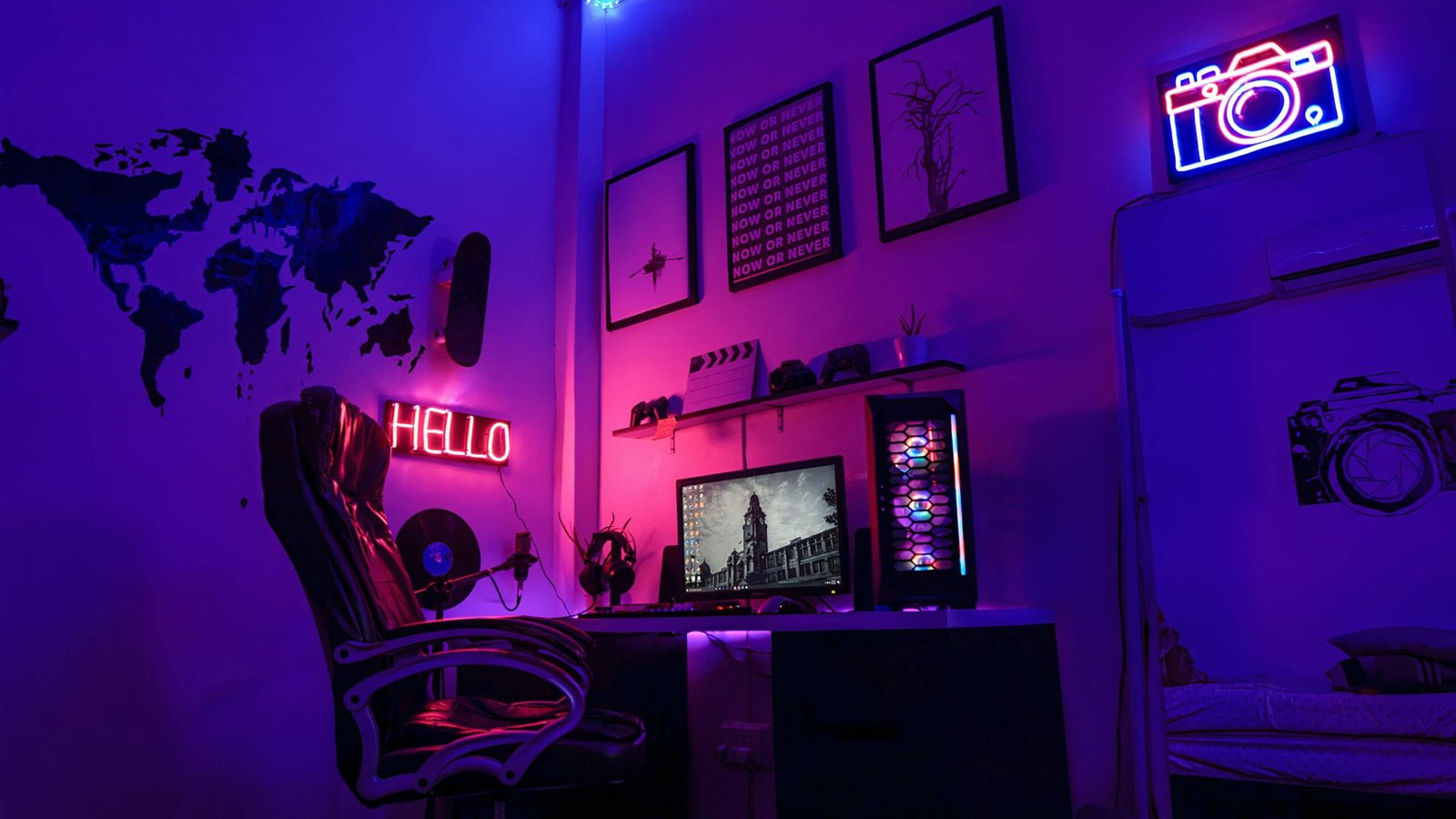
“How to get into the gaming industry with no experience?” It’s a question that has echoed in the minds of many gaming enthusiasts. But what if I told you that breaking into this vibrant world isn’t as elusive as it seems? While it’s packed with challenges, with the right tools and strategies, anyone can carve out a space in the gaming realm. From avid players to complete newbies, this guide is your gateway into the industry. So, strap in, level up, and let’s embark on this thrilling journey together!
Table of Contents
Understanding the Gaming Landscape
Before you delve into the vast world of gaming, especially if you’re pondering on how to get into the gaming industry with no experience, it’s imperative to understand the landscape itself. The gaming world is more than just AAA titles and eSports championships—it’s a thriving universe with a plethora of roles and niches.
A Brief History:
The video game industry has evolved dramatically since the days of Pong and Space Invaders. From arcade games to home consoles, PC masterpieces, and now mobile and cloud gaming, the industry’s transformation has been monumental.
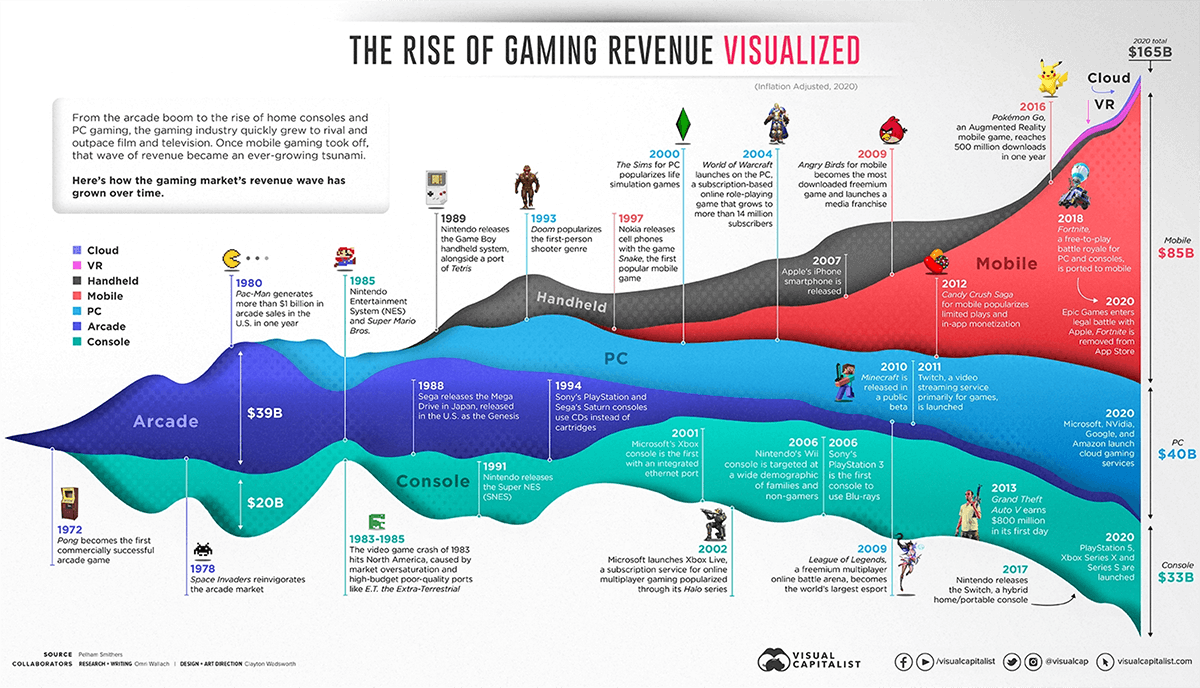
Different Gaming Platforms:
While many dream of working on top-tier console games, numerous platforms need talent. Mobile gaming, browser-based games, indie games, and VR/AR games offer opportunities for newcomers to make their mark.

Types of Roles in the Industry:
The gaming industry isn’t just about developers coding away in a dimly lit room. Artists, writers, designers, marketers, and many more work together to bring a game to life.
Current Trends:
Understanding current gaming trends can help you identify potential areas to focus on. Whether it’s the rise of mobile gaming, the boom in VR, or the importance of social components in games, being in tune with what’s trending gives you an edge.

Major Players & Indie Developers:
It’s essential to recognize both the giants in the industry, like EA, Ubisoft, or Nintendo, and the smaller indie developers who are pushing boundaries in gaming narratives and mechanics.
Conclusion:
The gaming industry, in its essence, is a fusion of technology and art. And while it’s a competitive field, there’s room for passionate individuals who bring creativity, dedication, and a willingness to learn. As you navigate your way to breaking into this vibrant world, understanding its intricacies is your first step.
In your journey to understand how to get into the gaming industry with no experience, taking the time to genuinely appreciate the world you’re stepping into will make all the difference. With a solid grasp of the gaming landscape, you’re better equipped to find your unique spot in this dynamic industry.
Starting With the Basics: Education & Self-learning | How to Get Into the Gaming Industry with No Experience
Jumping headfirst into the gaming industry, especially when contemplating how to get into the gaming industry with no experience, can be an intimidating endeavor. But every expert was once a beginner. To make a mark in this dynamic field, you need to couple passion with knowledge. Let’s explore the realms of formal education and the boundless opportunities of self-learning.
Formal Education – Is It Necessary?
There’s no definitive answer here. While many industry giants have degrees in game design, computer science, or related fields, there are countless success stories of self-taught individuals who have made significant contributions. However, if you’re someone who thrives in structured environments, seeking a degree in a related field can be beneficial. It gives you foundational knowledge, access to industry connections, and often, practical experience through internships.
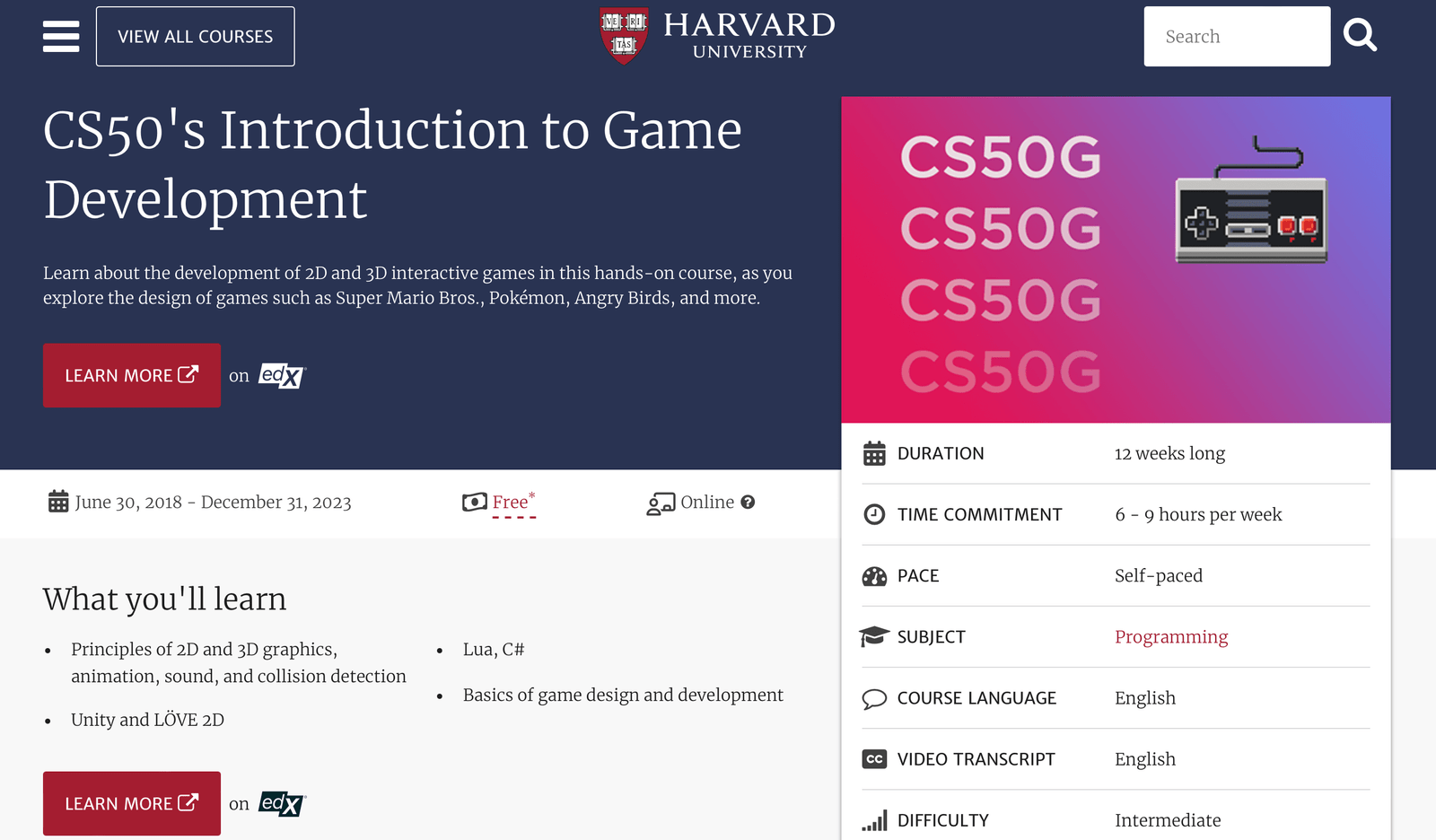
Self-Learning – The Sky’s the Limit:
The beauty of the gaming world is that it’s always evolving. Thus, continuous learning becomes crucial. There are numerous online platforms, like Udemy, Coursera, or Khan Academy, offering courses on game development, graphic design, and more. Picking up a course and dedicating a few hours every week can be the stepping stone you need.
Tapping into Free Resources:
The internet is brimming with resources. From forums like Stack Overflow, where you can get coding queries resolved, to YouTube channels that offer tutorials on everything from game mechanics to character design, the learning resources are endless. Bookmarking these and setting aside time daily or weekly to go through them can be immensely beneficial.
Networking and Community Involvement:
While this may seem tangential to education, attending webinars, workshops, and industry conventions can be enlightening. Platforms like Meetup or Eventbrite often list local or virtual events related to gaming. Engaging with these not only augments your knowledge but also lets you connect with like-minded individuals and industry insiders.
Conclusion:
Whether you opt for a formal education or carve your own path via self-learning, staying proactive and perpetually curious is the key. Remember, while degrees and certificates can open doors, it’s your passion, dedication, and continuous quest for knowledge that will sustain and elevate your journey in the gaming industry.
Navigating the path of how to get into the gaming industry with no experience might seem daunting, but by arming yourself with the right knowledge and resources, you’re setting a strong foundation for an exciting journey ahead.
Networking & Building Relationships
When exploring how to get into the gaming industry with no experience, an undeniable asset is the people you know and the relationships you cultivate. The gaming world, vast as it is, thrives on connections and collaborations. Just like in any other industry, “who you know” can sometimes be as vital as “what you know.” Let’s delve into the art of networking and why it’s a game-changer for aspiring gaming professionals.
Why Networking is Critical:
The gaming industry is driven by collaborations – be it developers working with artists, marketers collaborating with game testers, or producers liaising with indie developers. When you establish a wide network, you naturally open doors to opportunities: job offers, collaborations, partnerships, or even mentorships.

Start with Social Media:
Platforms like Twitter, LinkedIn, and even Instagram have active gaming communities. By following industry leaders, joining gaming groups, or participating in discussions, you not only stay updated with the latest trends but also get noticed by industry insiders.
Join Gaming Forums and Online Communities:
Websites like NeoGAF, Reddit’s r/gamedev, or the Unity and Unreal Engine forums are teeming with professionals and enthusiasts discussing the latest in gaming. Engaging here, asking questions, and offering insights can bolster your reputation and help you connect with potential collaborators or employers.
Attend Gaming Conventions and Workshops:
Events like E3, PAX, or local gaming workshops can be goldmines for networking. Besides getting a firsthand look at the latest industry trends, these events offer the chance to meet professionals, developers, and recruiters face-to-face. Always remember to carry a business card or have a digital portfolio handy!

Volunteer or Collaborate on Indie Projects:
What better way to showcase your passion and skill than by collaborating on projects? Indie developers often seek volunteers for various roles. This not only helps you gain practical experience but also lets you forge lasting relationships with those in the industry.
Consistency is Key:
Networking isn’t a one-time affair. It requires regular engagement, follow-ups, and genuine interest in building relationships. Sending a quick message to someone you met at a convention or commenting on an industry leader’s post keeps you on the radar and strengthens your network over time.
Conclusion:
As you navigate the pathway of how to get into the gaming industry with no experience, remember that every connection you make is a step forward. Be genuine, be curious, and most importantly, be persistent. Your network is a testament to your passion and dedication, and it could very well be the key to unlocking your dream role in the gaming world.
Creating a Portfolio
Breaking into the question of how to get into the gaming industry with no experience might sound daunting, but one powerful tool can significantly sway the odds in your favor: a stellar portfolio. When considering how to get into the gaming industry with no experience, showcasing your passion and potential through a well-curated portfolio can be your ticket in. Let’s break down the essentials of building that winning portfolio.
The Purpose of a Portfolio:
In essence, a portfolio is your professional showcase. It offers a tangible representation of your skills, creativity, and commitment. Especially in a visual and dynamic field like gaming, being able to present your work visually is invaluable.

Getting Started:
Begin by selecting a platform to host your portfolio. Websites like ArtStation, Behance, or even creating your own personalized website can be effective. Choose a platform that aligns with your expertise, whether it’s game design, animation, scripting, or any other niche within the industry.
Highlighting Your Best Work:
Always lead with your strongest projects. Your portfolio should be a reflection of your best work, not necessarily all your work. Be it a game level you’ve designed, a character you’ve conceptualized, or a script you’ve written, make sure it’s polished, complete, and presented beautifully.
Diversify Your Content:
While it’s essential to specialize, showcasing versatility can be a big plus. If you’ve dabbled in both game design and narrative writing, or character animation and level design, highlight them. This can illustrate your multifaceted approach to game development.
Include Personal Projects:
Just because you haven’t worked in the industry doesn’t mean you haven’t created anything. Personal projects, college assignments, or any work you’ve done out of sheer passion should be included. It gives potential employers insight into your initiative and dedication.
Process Showcase:
Sometimes, the journey is as important as the destination. Showing the stages of your work, from concept sketches to the final product, can be intriguing. It not only exhibits the evolution of your project but also offers a glimpse into your thought process.
Seek Feedback and Refine:
Before making your portfolio public, seek feedback. This could be from peers, mentors, or online communities. Constructive criticism can help polish and refine your portfolio, ensuring it’s ready for the industry’s eyes.
Stay Updated:
The gaming industry is ever-evolving. As you continue to learn and create, regularly update your portfolio. This keeps it fresh, relevant, and in line with current industry standards.
Conclusion:
Your portfolio is more than just a collection of your work. It’s a testament to your passion, commitment, and potential in the gaming industry. When contemplating how to get into the gaming industry with no experience, remember that a compelling portfolio can speak volumes more than just words on a resume. Make it count!
Internships & Volunteer Opportunities
The allure of the gaming world has many dreaming of a career amongst its virtual realms. But, the question of “how to get into the gaming industry with no experience” can halt many in their tracks. The secret? Starting small and hungry. Internships and volunteer opportunities are the golden gateways into the heart of the gaming community. Here’s why and how you should consider them.
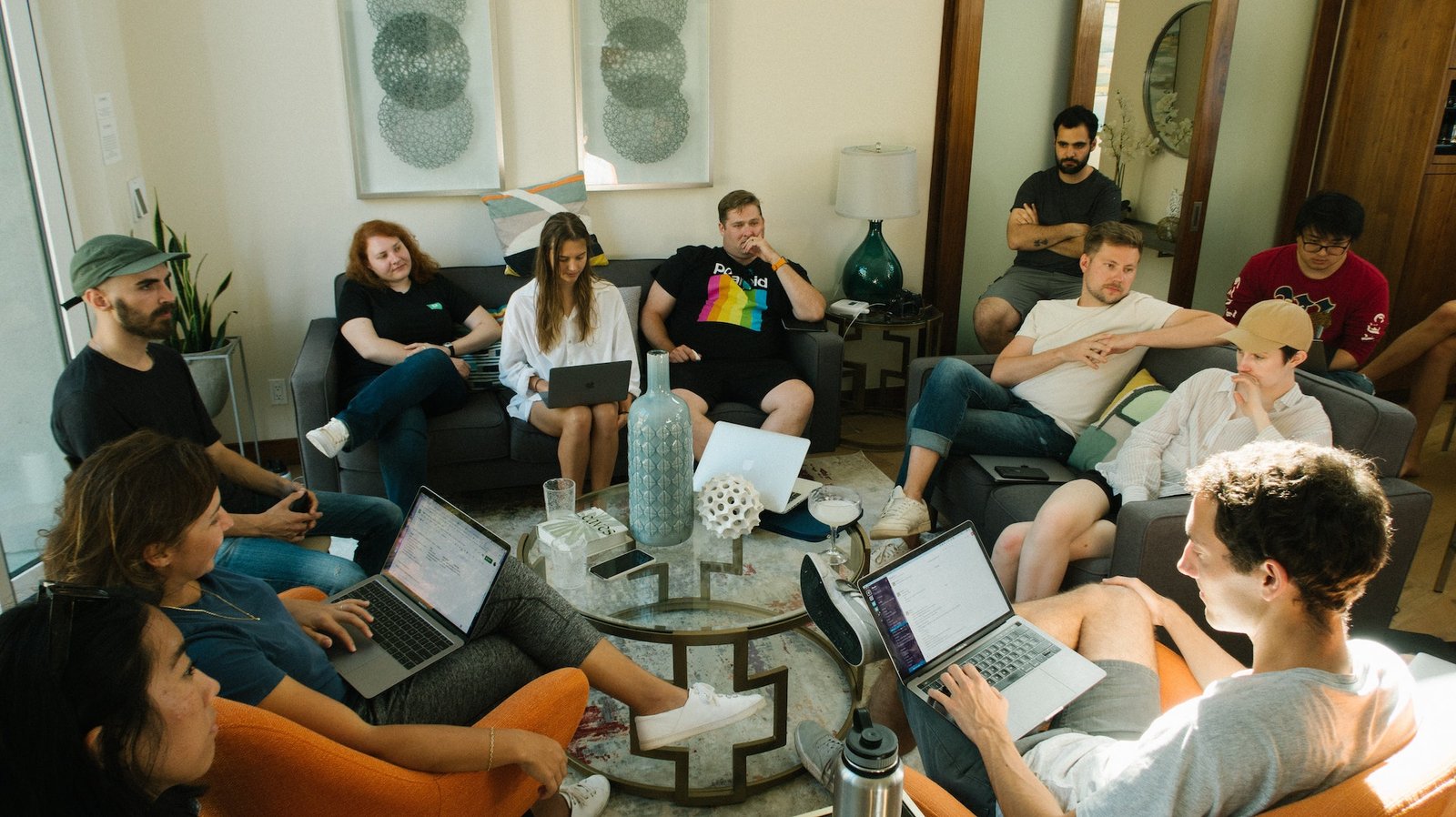
Why Internships and Volunteering are Crucial:
For many, the gaming industry seems like a fortress. But internships and volunteering act as the drawbridges, welcoming newcomers into the community. These positions provide firsthand experience, industry insights, and the much-needed foot-in-the-door.
Getting the Right Internship:
With an array of gaming companies, both giants and startups, offering internships, it’s important to pick the right one. Research companies that align with your interests, whether it’s VR gaming, mobile games, or console-based adventures. Reach out, showcase your portfolio, and express genuine enthusiasm.
The Unpaid Reality & Its Worth:
Many internships, especially in sought-after industries like gaming, may be unpaid. But remember, the value isn’t in the paycheck. It’s in the experience, the network you build, and the doors that open as a result. Consider it an investment in your future.
Volunteer for Gaming Events:
Popular gaming events, conventions, and tournaments often seek volunteers. This is a golden opportunity. Not only do you immerse yourself in the gaming culture, but you also rub shoulders with industry insiders, developers, and even potential employers.

Learning On-the-Job:
Internships and volunteering are real-world classrooms. You’ll learn the intricacies of game development, team dynamics, project management, and the art of meeting deadlines. These experiences are invaluable, molding you for a full-time position in the future.
Building Relationships:
This industry thrives on relationships. Being an intern or volunteer provides the chance to meet mentors, make friends, and establish professional contacts. These relationships can lead to job recommendations, collaborations, or even kickstarting your own venture.
Being Ready to Pivot:
One of the beauties of internships is the exposure to different departments. You might enter loving game design but find a newfound passion for game testing or narrative writing. Be open to discovering new facets of yourself and the industry.
Conclusion:
The journey of breaking into the gaming world, especially when pondering how to get into the gaming industry with no experience, isn’t without its challenges. But with passion, persistence, and the strategic move of leveraging internships and volunteer opportunities, the virtual horizon is yours to explore and conquer!
Freelancing & Side Projects
For those asking themselves “how to get into the gaming industry with no experience?”, another viable path is diving into freelancing and initiating side projects. These ventures not only hone your skills but also place you squarely on the radar of potential employers. Let’s uncover how these endeavors can skyrocket your entry into the dynamic world of gaming.

Why Freelancing is a Gem
In a digital age, freelancing offers a fantastic platform for budding game developers and enthusiasts. It grants flexibility, diverse projects, and a chance to collaborate with clients from different corners of the gaming sphere.
Building a Freelance Profile
Start by showcasing your skills on platforms like Upwork, Fiverr, or Freelancer. Tailor your profile, highlighting any game-related work, courses, or personal projects. This is your virtual storefront; make it count.
Identifying the Right Projects
As a newcomer, it’s tempting to grab any project that comes your way. But be selective. Choose projects aligning with your career aspirations. Want to be a game designer? Opt for design-related tasks. Narrative enthusiast? Dive into game story development.
The Power of Side Projects
Side projects are a testament to your passion and dedication. Create a simple game, develop a mod for an existing one, or even write a series of game reviews on a personal blog. These efforts not only enhance your portfolio but also demonstrate initiative.
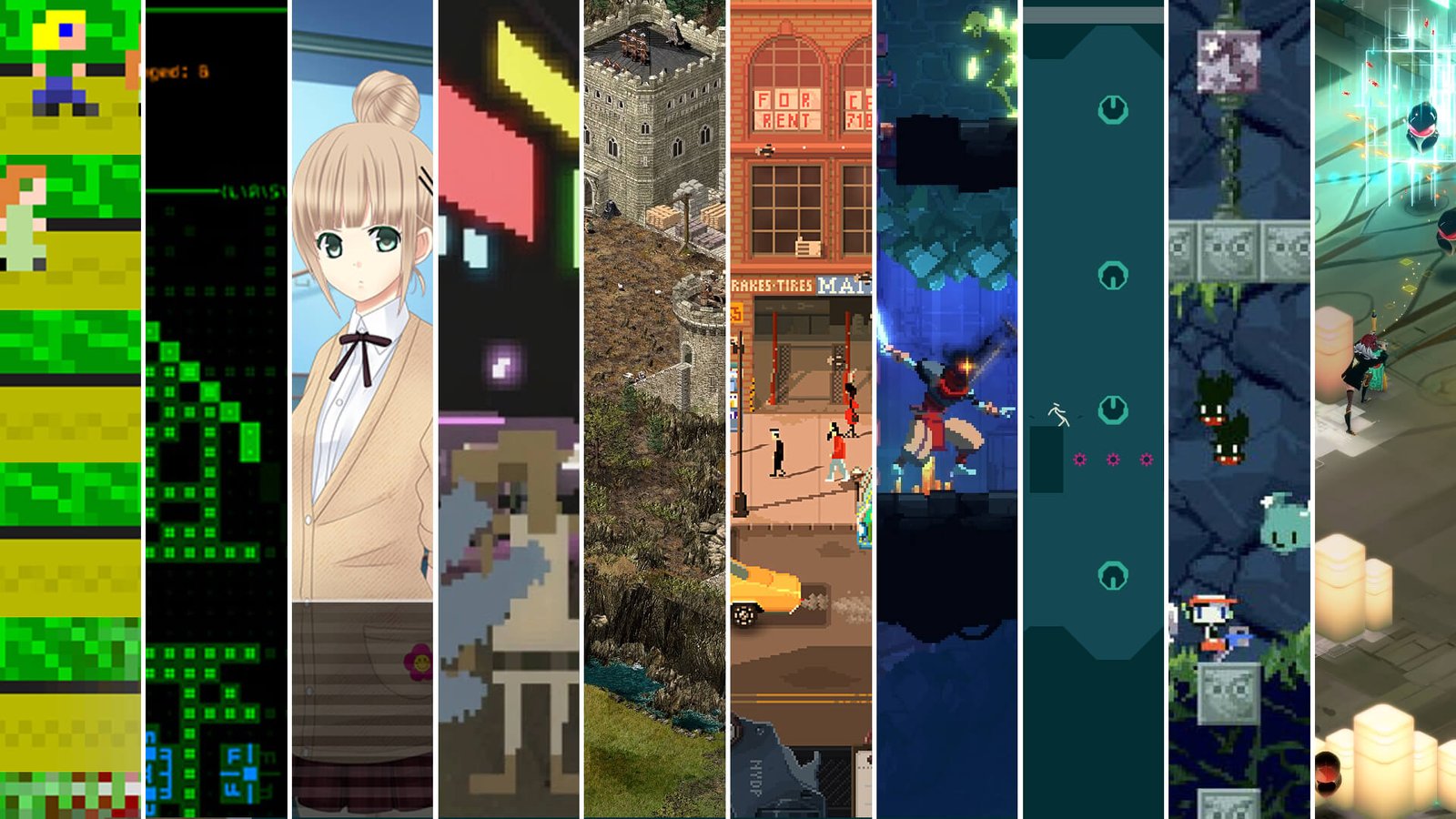
Benefits of Collaborative Ventures
Consider teaming up with other budding game enthusiasts on joint projects. This fosters collaboration, introduces you to team dynamics, and multiplies the skills and resources at hand.
Balancing Quality with Quantity
While it’s beneficial to have multiple projects under your belt, focus on quality. A single, well-developed game or project can speak volumes compared to numerous half-baked endeavors.
Using Feedback to Your Advantage
One of the beauties of freelancing and side projects is direct feedback. Clients, players, and peers can provide insights that help refine your skills. Embrace constructive criticism; it’s your ladder to growth.
Conclusion
The gaming industry respects talent, passion, and tenacity. Freelancing and side projects are a testament to all three. As you navigate the query of how to get into the gaming industry with no experience, let these ventures be your guiding stars, lighting up pathways to opportunities, growth, and recognition.
Game Testing & Quality Assurance (QA)
For individuals keen on discovering how to get into the gaming industry with no experience, game testing and Quality Assurance (QA) provide a promising entry point. These roles, often overlooked, are foundational in the gaming ecosystem. They ensure that every game released meets high-quality standards. Let’s dive into this sector and explore how it can serve as your gateway into the broader gaming industry.

The Role’s Significance
Every glitch-free gaming experience, every bug-free session, owes its smoothness to the tireless efforts of game testers and QA professionals. They delve into every nook and cranny of a game, playing it multiple times under different conditions, looking for inconsistencies, bugs, and potential improvements.
Getting Started as a Game Tester
Starting as a game tester doesn’t necessarily require a degree, although courses in game design or software testing can be beneficial. Most importantly, companies seek individuals with a keen eye for detail, persistence, and a genuine love for gaming.
- Develop a Gaming Routine: Make a habit of playing diverse games, noting glitches, and understanding gameplay dynamics.
- Research & Certifications: While not mandatory, QA certifications can provide a leg-up. Consider certifications like ISTQB to get started.
- Apply Broadly: Many companies offer entry-level game testing positions. Keep an eye on job portals and company career pages.
Growth and Beyond
Starting in QA doesn’t mean you’ll be stuck there. Many professionals transition to game design, development, or project management roles after gaining experience. QA gives a holistic view of game creation, making it an excellent launchpad for other gaming industry careers.
To anyone pondering how to get into the gaming industry with no experience, game testing and QA offer an authentic, hands-on introduction. By ensuring the games we love are error-free, you’re not just starting your gaming career; you’re becoming an integral part of the industry’s success.
Online Presence & Personal Branding
In today’s digital age, when you’re looking into how to get into the gaming industry with no experience, having a strong online presence and a distinct personal brand can give you a considerable edge. This isn’t merely about having active social media profiles; it’s about establishing yourself as someone passionate about gaming and eager to contribute to the industry. Let’s dive into the importance of these factors and how you can effectively leverage them.

The Power of Personal Branding
Your personal brand is an amalgamation of your skills, experiences, and passions. It’s how you present yourself to the world and, more specifically, potential employers in the gaming industry.
- Showcase Your Passion: Share your thoughts on recent game releases, gaming news, and industry trends. Blogging or making YouTube videos can be a great platform for this.
- Engage with the Gaming Community: Join forums, attend gaming conventions (either physically or virtually), and interact with developers, gamers, and influencers on platforms like Twitch or Discord.
- Specialize: Whether it’s retro gaming, esports, game mechanics, or game narratives, find a niche you’re passionate about and position yourself as an expert.
Building an Online Presence
- Create a Professional Portfolio: A personal website can serve as a central hub, showcasing your projects, blog posts, reviews, and other related work.
- Be Active on Social Media: Platforms like Twitter and LinkedIn are excellent for networking and sharing insights. Engage in conversations, share your thoughts on game releases, or even conduct interviews with industry insiders.
- Online Courses & Certifications: Sharing certifications and courses you’ve completed on platforms like Udemy or Coursera can enhance your credibility.
Why It Matters
Having a vibrant online presence and personal brand showcases not only your passion for gaming but also your commitment and professionalism. As the industry continues to grow and evolve, those who position themselves effectively online will find it much easier to gain recognition, build relationships, and eventually land their dream job in the gaming world.
To sum up, as you ponder how to get into the gaming industry with no experience, remember that in this digital era, your online footprint can often speak louder than a resume. Crafting it wisely can open doors you never thought possible.
Continuous Learning & Skill Enhancement
Breaking into the dynamic world of the gaming industry, especially when figuring out how to get into the gaming industry with no experience, demands more than just initial knowledge. The industry is rapidly evolving, with new technologies, gaming platforms, and design philosophies emerging every year. As such, continuous learning and skill enhancement aren’t just optional; they’re necessities.

Embracing a Growth Mindset
A growth mindset – the belief that abilities and intelligence can be developed through dedication and hard work – is crucial. This perspective fosters resilience in the face of challenges, a passion for learning, and a more in-depth understanding of the ever-changing world of gaming.
- Stay Updated with Industry News: Subscribe to prominent gaming magazines, websites, and podcasts. Being aware of the latest trends, game launches, and industry innovations will give you a competitive edge.
Dive into Educational Platforms
There are a plethora of platforms offering courses specifically tailored to aspiring game developers, designers, and other industry roles.
- Online Courses: Websites like Coursera, Udemy, and Khan Academy offer specialized courses in game design, programming, animation, and more. These platforms often provide certifications upon completion, adding weight to your CV.
- Workshops and Webinars: Attend industry-specific workshops, both online and offline. They’re excellent opportunities to deep dive into specific topics and network with professionals.
Hands-on Practice is Key
While formal education and courses are valuable, there’s no substitute for hands-on experience.
- Personal Projects: Create your own games, no matter how small. These projects not only enhance your skills but also showcase your dedication and passion to potential employers.
- Collaborative Ventures: Join or initiate group projects. Collaborating on a game can provide insights into team dynamics, project management, and multitasking – all vital skills in the gaming industry.
Keep Expanding Your Toolkit
With the rapid technological advancements in the gaming sphere, it’s crucial to familiarize yourself with the latest tools and software.
- Software Proficiency: Tools like Unity, Unreal Engine, and Blender are industry staples. Regularly update your knowledge of such software and explore newer ones as they emerge.
- Soft Skills: While technical skills are vital, soft skills like communication, teamwork, and critical thinking are equally important. Enroll in workshops or courses that can help enhance these skills.
In conclusion, when contemplating how to get into the gaming industry with no experience, never underestimate the power of continuous learning. The industry respects those who demonstrate dedication to their craft, adaptability to change, and an insatiable hunger for knowledge. By investing time in skill enhancement, you’re not just preparing to enter the industry; you’re gearing up to thrive in it.
Applying for Jobs & Handling Rejections
The path on how to get into the gaming industry with no experience might feel intimidating, but with the right mindset and approach, you can navigate the challenges. One significant hurdle for many is the job application process itself, followed by the inevitable rejections. Let’s break down how to approach this phase with resilience and determination.

Crafting the Perfect Resume
Your resume is your gateway, especially when you’re looking to get into the gaming industry with no experience. It’s essential to make it as captivating and relevant as possible.
- Tailored Resumes: Avoid sending generic resumes. For every job application, tailor your CV to highlight the skills and experiences most relevant to the job description.
- Showcase Your Portfolio: Whether it’s game designs, programming projects, or animations, always attach or provide a link to your portfolio. This gives potential employers tangible proof of your skills.
Mastering the Interview
Once your resume catches an employer’s eye, it’s interview time! Here, your soft skills and passion for gaming will truly come into play.
- Research the Company: Go beyond just knowing the company’s top-selling games. Understand their work culture, mission, and values. This shows that you’re genuinely interested.
- Prepare for Technical Questions: Especially in the gaming industry, you might be tested on your technical know-how. Refresh your knowledge before the interview.
- Ask Questions: An interview is a two-way street. Prepare questions to ask the interviewer. It could be about the company’s future projects, team dynamics, or any upcoming technologies they’re excited about.
Navigating Through Rejections
Rejections, especially multiple in succession, can be disheartening. However, they’re also a part of growth.
- Seek Feedback: If possible, request feedback on your interview or portfolio. Constructive criticism can provide insights into areas of improvement.
- Stay Positive: Remember, every industry professional, at some point, faced rejections. It’s essential to learn, adapt, and persist. Take a break if needed, but never give up.
- Broaden Your Horizons: Sometimes, starting in a smaller role or at a lesser-known gaming company can provide valuable experience. Be open to diverse opportunities.
In wrapping up, while learning how to get into the gaming industry with no experience, it’s crucial to remember that rejections aren’t a measure of your worth or talent. They’re merely stepping stones to your eventual success in the industry. With each application and interview, you’re one step closer to landing your dream job in the gaming world.
Diversifying Your Skill Set
How to get into the gaming industry with no experience, isn’t just about knowing how to design a game or understanding its mechanics. It’s about versatility, adaptability, and the will to wear many hats. Let’s dive into why diversifying your skills can be your golden ticket to a successful gaming career.

Broadening Horizons
Diversifying doesn’t mean moving away from your passion. If game design is your dream, chasing it is vital. But understanding other aspects, such as game marketing, scripting, or even sound design, can provide a holistic view of the industry. This not only enhances your resume but also broadens your horizons in team discussions.
Increased Job Opportunities
Companies often look for “T-shaped” individuals. These are people who have depth in one area (the vertical bar of the T) but can also collaborate across disciplines (the horizontal bar). By acquiring auxiliary skills, you fit this mold, and suddenly, a plethora of job roles, not just the ones in your primary field, become accessible.
Staying Relevant
The gaming industry, much like any tech-driven field, is fast-evolving. What’s in demand today might be obsolete tomorrow. Having a diversified skill set ensures that you stay relevant. It provides a safety net; if one skill becomes redundant, you have others to fall back on.
Enhancing Creativity
Believe it or not, learning unrelated skills can enhance creativity in your primary field. Understanding the nuances of game soundtracks might give you insights into game pacing. Or knowing game marketing could provide perspectives on what gamers truly want.
How to Diversify?
Start with online courses on platforms like Coursera or Udemy. These platforms offer a range of courses, from game animation to marketing. Join workshops or webinars. And most importantly, practice! For instance, if you’re into game design, try creating a soundtrack for your game. The more you immerse yourself in diverse roles, the better you’ll understand the gaming ecosystem.
Remember, it’s not about being a master of all trades but rather a jack. By diversifying your skill set, you’re not diluting your primary expertise. Instead, you’re enriching it, preparing yourself for a multifaceted career in the dynamic world of gaming. So, as you contemplate how to get into the gaming industry with no experience, consider adding a few more strings to your bow. It might just be the edge you need.
Future Trends & Opportunities in Gaming
Just when you think gaming can’t get any more innovative, the industry pulls another rabbit out of its hat! Understanding future trends and opportunities can significantly boost your chances on how to get into the gaming industry with no experience. So, what can you expect in the years ahead? Let’s dive in.

1. Virtual Reality (VR) and Augmented Reality (AR):
VR and AR technology are fast becoming the new frontiers in gaming. These immersive experiences are not just a hit among gamers but are also providing myriad opportunities for game developers, graphic designers, and sound engineers.
2. Mobile Gaming:
With smartphones becoming more advanced, mobile gaming has skyrocketed. This shift opens doors for game designers, marketers, and customer service roles, particularly within the mobile gaming niche.
3. Cloud-Based Gaming:
The rise of cloud-based gaming platforms has made gaming more accessible than ever. This trend may lead to an increase in game testing and Quality Assurance (QA) roles, as these platforms will demand games that run smoothly on a variety of devices.
4. Game Streaming & Content Creation:
Platforms like Twitch and YouTube are making celebrities out of gamers. If you have a charismatic personality and gaming skills to boot, you could carve a niche for yourself as a gaming influencer.
5. eSports:
Once a subculture, eSports has exploded into the mainstream. Whether you’re into marketing, event planning, or even sports psychology, the eSports arena has a job for you.
6. Social Responsibility & Gaming:
A growing trend is the focus on social issues within games, be it mental health or climate change. This creates opportunities for narrative designers interested in weaving social responsibility into gaming stories.
7. Localization and Global Reach:
As gaming becomes more global, there’s a growing need for translators and localization experts to make games accessible to a wider audience.
8. Cross-Platform Gaming:
The increasing compatibility between different gaming platforms provides a broader market and, by extension, more job opportunities. It calls for specialists who can ensure seamless integration.
Conclusion:
As the gaming industry continues to evolve, it offers a plethora of opportunities for aspiring individuals and you shouldn’t be worried about the question on how to get into the gaming industry with no experience. Staying up-to-date with these trends will not only make you more marketable but will also provide a clearer path on how to break into this exciting industry.
The future looks bright and full of possibilities. Your dream job in the gaming industry may not even exist yet, but if you keep an eye on these trends, you’ll be ready when it does.
Wrapping It Up: Stepping into the Gaming World
Answering the question of how to get into the gaming industry with no experience, can undoubtedly feel like a daunting quest. But remember, every legendary game developer, designer, or pro-gamer started somewhere. With the roadmap we’ve laid out, from understanding the ever-evolving landscape to leveraging future trends, you are now equipped with the knowledge to embark on your own epic journey.

The gaming industry is expansive, dynamic, and full of opportunities waiting for someone just like you. So, immerse yourself, be persistent, continuously learn, and adapt. Your passion, paired with the strategies highlighted in this guide, will be your compass.
Whether you’re dreaming of creating the next hit game, becoming an influential streamer, or even revolutionizing the industry with innovative ideas, the controller is in your hands. Level up, and let’s see the incredible game-changer you’re destined to be!
Why Trust Us?
Navigating the vast landscape of information on the internet can be daunting. With so many voices vying for attention, it’s natural to wonder, “Why can I trust?” techcorniche, our priority has always been you – our cherished reader.
Here’s why placing your trust in us is a choice you won’t regret:
- Experience Counts: Our team is a blend of industry veterans and enthusiastic young minds, collectively bringing decades of hands-on experience and knowledge. We’ve been in your shoes, asking the same questions, and seeking the best answers.
- Research-Driven Content: Every piece of information we present undergoes rigorous research. We delve deep, compare multiple sources, and ensure the data is up-to-date. Facts matter, and we’re committed to presenting them without bias.
- Genuine Recommendations: We aren’t here for a quick sell. Our reviews and suggestions come from genuine experiences, trials, and tests. If we wouldn’t buy it, use it, or recommend it to our family, it won’t make our recommended list.
- Transparency is Key: If there’s affiliate linking or sponsored content, we’ll always make it clear. Honesty underpins our work, ensuring you always know where we stand.
- Continuous Feedback Loop: We thrive on feedback. Listening to our readers helps us refine our content, ensuring it’s always relevant and resonant. Your insights and experiences matter and, in turn, guide our journey.
At the end of the day, we’re just like you – seeking the truth, clarity, and valuable insights in a vast digital sea. By aligning our passion with purpose, we aim to be your trusted beacon in the online world. So, come aboard and let’s navigate these waters together.
